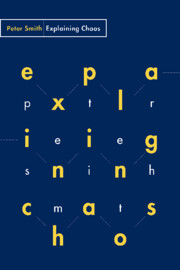4 - Predictions
Published online by Cambridge University Press: 22 September 2009
Summary
The argument of the last chapter raises as many questions as it answers. Chaotic models will idealize and misrepresent the facts by involving patterns of dynamical behaviour which have an intricacy that the modelled phenomena must typically lack. Agreed, other theoretical models also misrepresent by idealizing and simplifying: and we argued that chaotic models may not be dramatically worse off in this respect. Still, it might be wondered, just how comforting is the thought that chaos theory is in the same unseaworthy boat as other theories?
Perhaps we can cheerfully live with the fact that chaotic theories won't be strictly true if we can make sense of the natural fall-back position, namely that these theories may yet be approximately true. But is the notion of approximate truth in good enough shape to rely on here (the literature is littered with failed philosophical analyses)?
That's business for Chapter 5. First, however, there's a more immediate issue. We suggested that a dynamical model can represent the stretching and folding of trajectories in a way which meets standard canons of simplicity and yet as a result be chaotic. But chaos involves sensitive dependence on initial conditions, meaning that the inevitable errors in setting initial conditions inflate exponentially, which in turn means (it seems) that the practical predictions of a chaotic model must go spectacularly wrong. The question then seems to arise: what kind of ‘modelling’ can there be when there must be spectacular and pervasive predictive error?
- Type
- Chapter
- Information
- Explaining Chaos , pp. 51 - 70Publisher: Cambridge University PressPrint publication year: 1998



